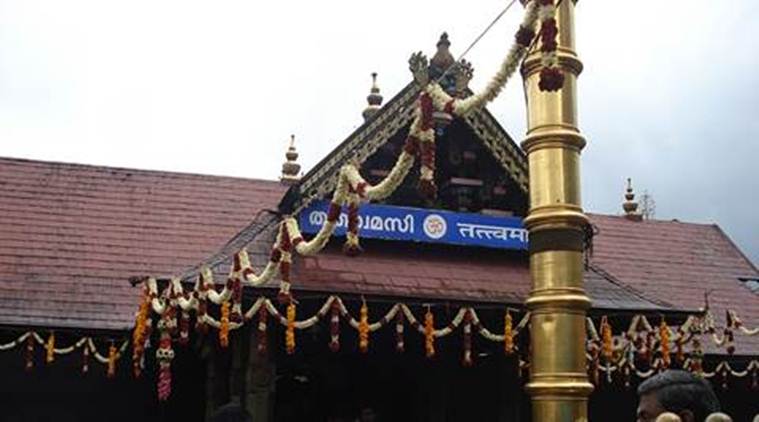 Activists have been seeking a change in the entry rules claiming that it was virtually a life-long ban, as many women may not live till the age of 50.
Activists have been seeking a change in the entry rules claiming that it was virtually a life-long ban, as many women may not live till the age of 50.
A five-judge Constitution bench of the Supreme Court was on Wednesday told that it was fundamentally incorrect to say that age restriction on entry of women into Kerala’s Sabarimala shrine was due to patriarchy.
The Nair Service Society (NSS), which is representing the Hindu Nair community in the case, said the state followed a matrilineal system where 96 per cent of women were educated. It is wrong to approach the issue with notions of patriarchy, senior advocate K Parasaran, appearing for the NSS, told the bench headed by Chief Justice of India Dipak Misra. Other members on the bench were Justices A M Khanwilkar, R F Nariman, D Y Chandrachud and Indu Malhotra.
He said the character of Sabarimala’s deity, Lord Ayyappa, as a ‘naishtika brahmachari’ (eternal celibate), was protected by the Constitution and urged the court not to tamper with it.
The NSS is against the relaxation of age restrictions on women for entry into the shrine.
Responding to Justice D Y Chandrachud, who on Wednesday observed that the entry restrictions were on account of patriarchy, Parasaran said the court should listen to the voices that seek to protect tradition as well.
One must not proceed with the presumption that the ancients hardly knew anything, he added.
Sabarimala temple allows entry only to women below 10 and above 50, citing the celibate nature of the deity. Activists have been seeking a change in the entry rules claiming that it was virtually a life-long ban, as many women may not live till the age of 50.